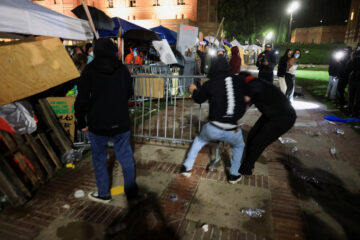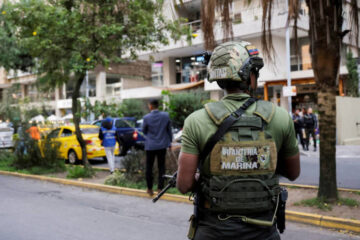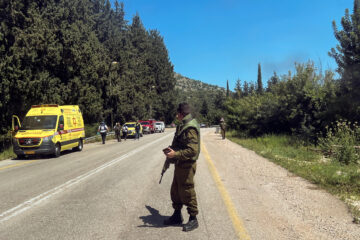North Korea threatens action over US anti-missile system
North Korea threatened Monday to take "physical action" after Washington and Seoul announced they would deploy a sophisticated US anti-missile defence system to counter the growing menace from Pyongyang.
Seoul and Washington on Friday revealed their decision to deploy the Terminal High Altitude Area Defense (THAAD) system in the South following recent North Korean missile and nuclear tests.
The two allies have not yet revealed exactly when and where the system, which fires projectiles to smash into enemy missiles, would be deployed but said they were in the final stage of selecting a potential venue.
"The DPRK will take a physical counter-action to thoroughly control THAAD… from the moment its location and place have been confirmed in South Korea," the artillery bureau of the North\’s military said in a statement, according to the official Korean Central News Agency (KCNA).
North Korea\’s military, which has "sufficient latest offensive strike means", will take "more merciless and powerful successive corresponding measures against the US keen to ignite a war by deploying THAAD", it said.
It also warned the South of "miserable self-destruction" as a consequence of deployment of the THAAD system.
"We once again warn the enemies that it is the steadfast will of the KPA to make merciless retaliatory strikes to reduce south Korea to a sea in flames, debris once an order is issued," the statement said.
Seoul denounced the "ridiculous threats" by the North, which had staged serious provocations including a nuclear test in January and a long-range rocket launch in February.
"North Korea must recognise who is threatening peace and stability on the Korean Peninsula and first apologise for its provocations," defence ministry spokesman Moon Sang-Gyun told reporters.
Pyongyang also test-fired what appeared to be a submarine-launched ballistic missile a day after the announcement by Seoul and Washington, sparking swift international condemnation.
Saturday\’s launch followed Pyongyang\’s back-to-back tests of a powerful new medium-range Musudan missiles on June 22 — theoretically capable of reaching US bases as far away as Guam.
Tensions are high high since Pyongyang carried out its fourth nuclear test in January, followed by a series of missile launches that analysts said showed the North was making progress toward being able to strike the US mainland.
The planned deployment of the powerful anti-missile system has angered the South\’s neighbours including China, which said Friday the move would "seriously damage" regional security in northeast Asia.
South Korean President Park Geun-Hye however defended the move as a "purely defensive" action aimed at protecting the South.
"The international community will be aware that we have no intention to target or threaten another country… we are taking a purely defensive measure to protect our country and our people," Park said in a meeting with advisors.
She also urged support from South Koreans over the deployment of powerful weapon, in the face of growing protest in the areas said to be potential venues.
On Saturday, some 3,500 residents of Chilgok county in the southeast protested against the possible deployment, saying the region had not been properly developed since US troops were stationed there in 1960.
Nearly 30,000 US troops are permanently stationed across the South — a legacy of the 1950-53 Korean War that ended with a ceasefire instead of a peace treaty.
About 3,000 residents in the central county of Eumseong county are also set to stage a mass rally Monday to protest at the lack of information provided to the public about the potential dangers posed by the defence battery and its impact on the local economy.
SOURCE: AFP
[do_widget_area inner_adsbar]











